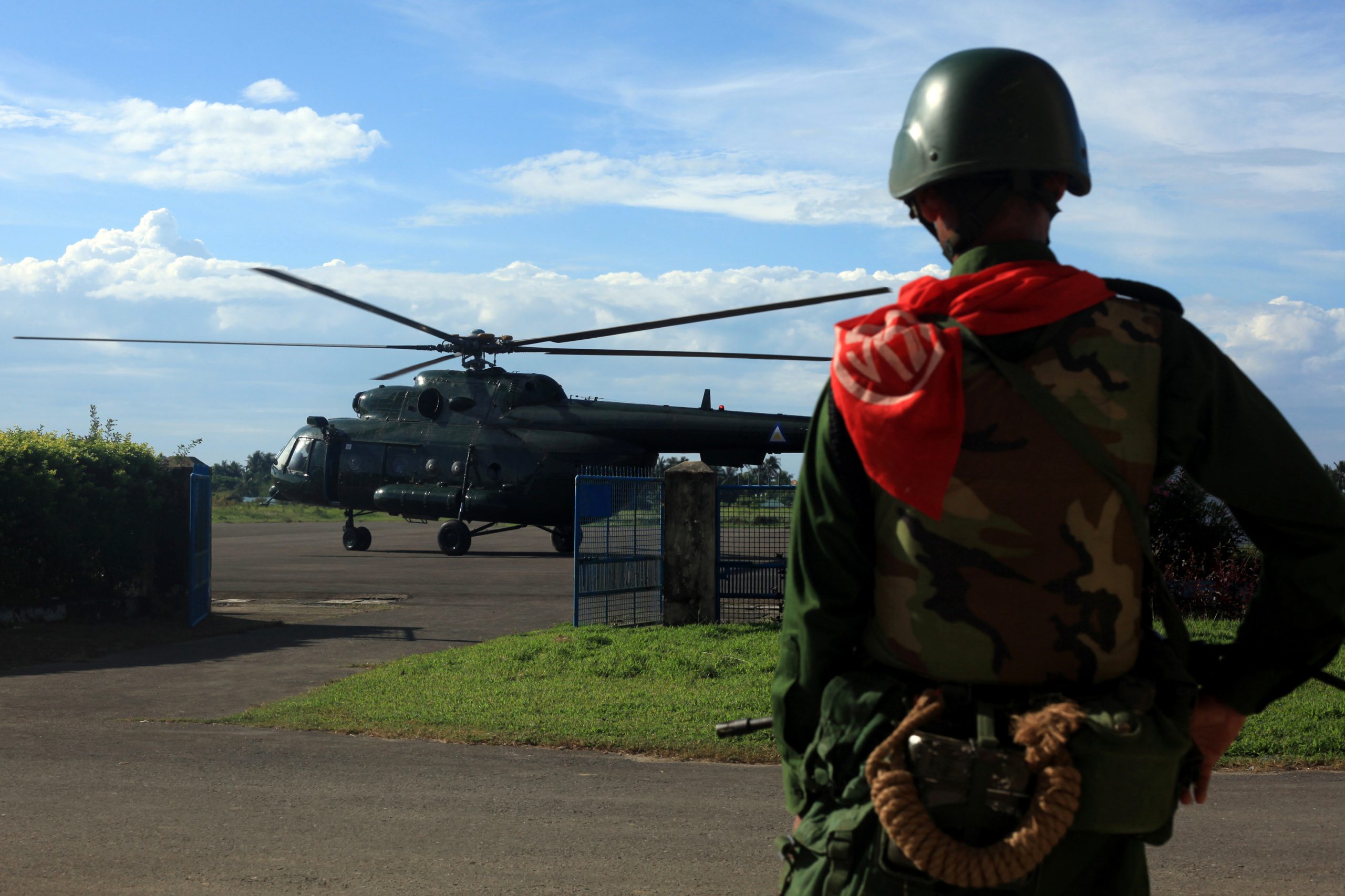International human rights advocates have criticised the interim report of the government-formed investigative commission tasked with probing the attacks on 9 October and subsequent violence in northern Arakan State, which have drawn widespread scrutiny amid accusations of human rights abuses perpetrated by security forces.
The report, released on Tuesday, largely downplayed what it termed the “external allegations” of rights abuses against Rohingya Muslims, focusing most of its analysis on the initial October assault on border police outposts and two subsequent attacks on 12 and 13 November. A security crackdown in the nearly three months since 9 October has seen hundreds of suspected militants detained and scores killed. Tens of thousands of the mostly stateless Rohingya have fled across the border into neighbouring Bangladesh as security forces hunt for what the government has described as an insurgency inspired by radical Islam.
“The Bengali population residing in Maungdaw region, the increasing population of Mawlawi [Islamic scholars], mosques and religious edifices are proof that there were no cases of genocide and religious persecution in the region,” read an unofficial translation of the report published in the state-run Global New Light of Myanmar on Wednesday, referring to self-identifying Rohingya using a word favoured by the previous government but explicitly discouraged by State Counsellor Aung San Suu Kyi, who in May described “Bengali” as well as “Rohingya” as emotive terminology to be avoided.
The report also dismissed allegations of rape, having failed to collect “sufficient evidence to take legal action up to this date.” Claims of homes being torched, illegal arrests and torture were still being investigated, the interim report said.
The 13-member commission was formed by President Htin Kyaw on 1 December amid growing international pressure to investigate alleged human rights abuses. It conducted one field visit to affected villages in Arakan State last month.
Its Tuesday report concluded, “The commission is carrying out its duties, being ever mindful that, as per the nature of these conflicts, illegal activities and fabricated rumours and news can appear occasionally.”
It identified the group responsible for the 9 October attacks as Aqa Mul Mujahidin, a finding at odds with a report from the Brussels-based International Crisis Group last month that said militants from an organisation called Harakah al-Yaqin were behind the assault.
The interim findings, which precede a full report due 31 January, were panned by human rights advocates this week.
“It’s very worrisome that this commission is looking more and more like the Myanmar government whitewash mechanism that we feared it would be when we first saw Vice President [and retired lieutenant general] Myint Swe appointed as chair, and looked over the list of members who are clearly beholden to government,” said Phil Robertson, deputy director of US-based Human Right Watch’s Asia division.
Matthew Smith of Fortify Rights echoed concerns about the commission’s impartiality.
“It’s led by a former military general tasked with investigating the military, and that’s part of the problem,” he said.
“Judging by what is written in this interim report, the commission has so far acted to discount out of hand what it calls ‘external allegations’ rather than seriously investigate them and risk uncovering the litany of rights violations against the Rohingya,” Robertson added.
The government has mounted a concerted effort to push back against claims of human rights abuses in the wake of the deadly 9 October attacks, only this week acknowledging that the allegations had some merit after a video surfaced of police officers beating Muslims in the northern Arakan State village of Kotankauk.
“Ministries led by Suu Kyi have charted the path of denial, waging a shameful propaganda campaign,” Smith told DVB.
David Mathieson, an independent consultant working on human rights and conflict issues in Burma for more than 15 years, said the interim report “will not serve to assuage concerns internationally that grave abuses have been perpetrated.”
[related]
He added, “Unfortunately the government still seems hell-bent on mishandling its public relations on the conflict in Maungdaw, and when it announced this investigation it promised it would be fair and transparent and up to international and local standards, when all evidence is to the contrary.”
Mathieson called on the government to loosen restrictions on access to the affected area, to allow media and human rights defenders to independently probe the allegations of abuse.
“The government simply has not awoken to the gravity of the situation they themselves have stoked through blunt denials and blustering obstruction, and blaming the international community for its continued coverage of the situation is almost infantile in its tone-deafness to genuine outrage over what is being reported from the conflict area,” he told DVB.



